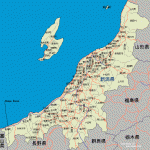curriculum EFL kids language courses Language learning online resources reviews school management self-study smart.fm technology vocabulary
by sendaiben
10 comments
The Word Engine
I think Koichi at Tofugu sums it up much better than I could, but I was very disappointed to hear the news that smart.fm closed down at the end of March (in order to renege on their pledge to remain a free site).
We’ve now moved all our students onto The Word Engine, an alternative paid site with a lot of nifty features. They have a reasonable sub-2000 yen price point for yearly subscriptions.
What sold it for me was the solid research foundation, the pre-test (V-check) that allows students to skip words they already know, and the teacher management system (V-admin) that makes it easy to keep track of large numbers of students and see how (and how much!) they are doing.
The Word Engine is an online SRS (spaced repetition system) that approaches vocabulary learning based on time boxes.
Signing up for an account is painless and takes less than a minute. Users then take a V-check test, which determines roughly how many words they already know. This is very important, as it allows students to skip items they likely know already and start right away on meaningful practice (this was a big problem with smart.fm, as it forced students to either guess at their level or start from the beginning). Payment is also easy, either online or by ordering access cards directly from Lexxica. Teachers can track their students via a free V-admin account, that shows student progress alongside the total amount of time they have spent studying online. It’s a great tool, as it allows teachers to sort by different variables.
After a few weeks, I really like the system. By far the best part is that practice is pretty much effortless. There is no penalty for getting items wrong, unlike in smart.fm, where students occasionally got really frustrated at being unable to ‘clear’ items. In the Word Engine, there is no downside for getting items wrong: they are just quietly moved back into the first box. Practice is also quick, with each session taking only a couple of minutes at the most.
While I would like to see more visuals and example sentences (things I thought smart.fm did well), these are minor issues.
So far we have over 50 elementary (higher grades), junior high, senior high, university, and adult students on the system. Feedback from the students so far is pretty good and most students are keeping to their 30 minutes a week targets (our best student has completed 22 hours of study in just over a month, and the worst just under 10 minutes, but most students are around the 2-3 hour mark).
If anyone else is using the Word Engine, I’d be really interested to hear how you are finding it.
curriculum Language learning online resources presentations readers Reading smart.fm teaching Uncategorized writing
by sendaiben
leave a comment
Niigata Teacher Seminar
 I just got back from Niigata, where I was invited to present to a great group of teachers from local junior and senior high schools.
I just got back from Niigata, where I was invited to present to a great group of teachers from local junior and senior high schools.
My topic was teaching reading and writing to junior and senior high school students, and you can see my presentation slides and notes below:
101111 Niigata Intro
101111 Niigata Reading for JSHS
101111 Niigata Writing for JSHS
101111 Niigata Notes
Thanks for a great day and good luck with your teaching!
iTunes store Japanese Language learning LingQ online resources renshuu rikai self-study smart.fm
by sendaiben
1 comment
Top Five Free Ways to Learn Japanese Online
I know a lot of people who despite living in Japan, just don’t get the exposure to comprehensible input that they would need in order to really make significant progress.